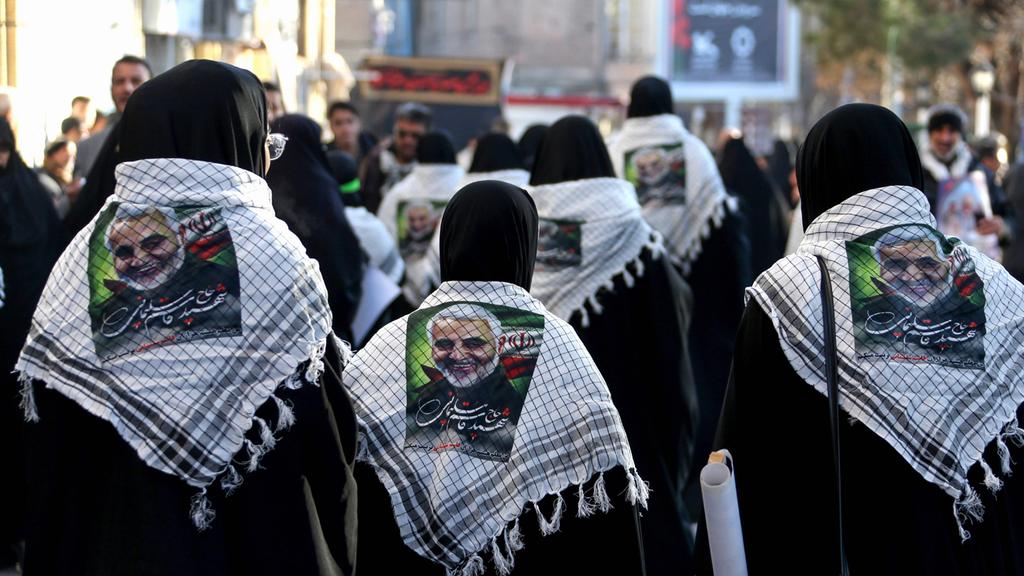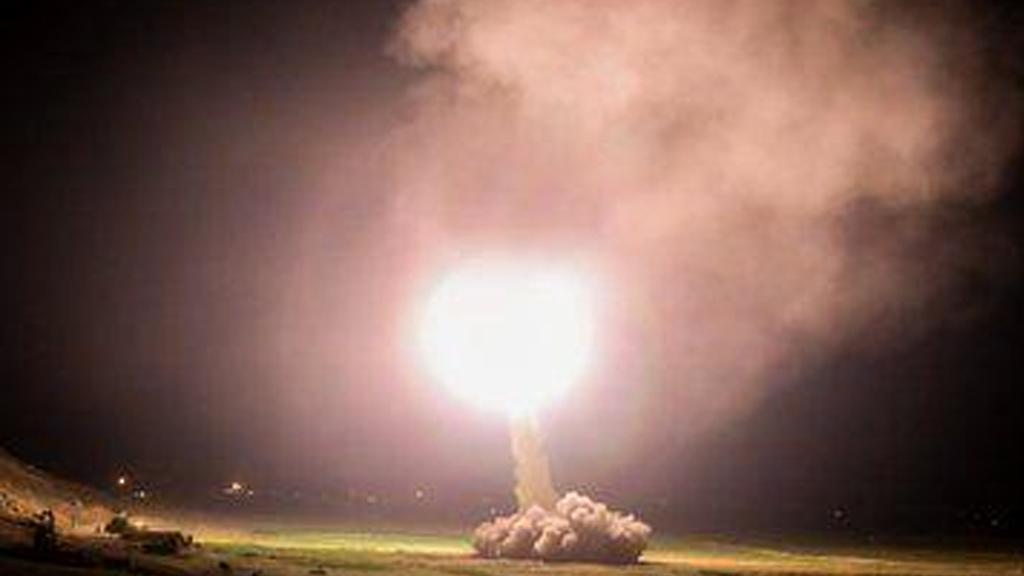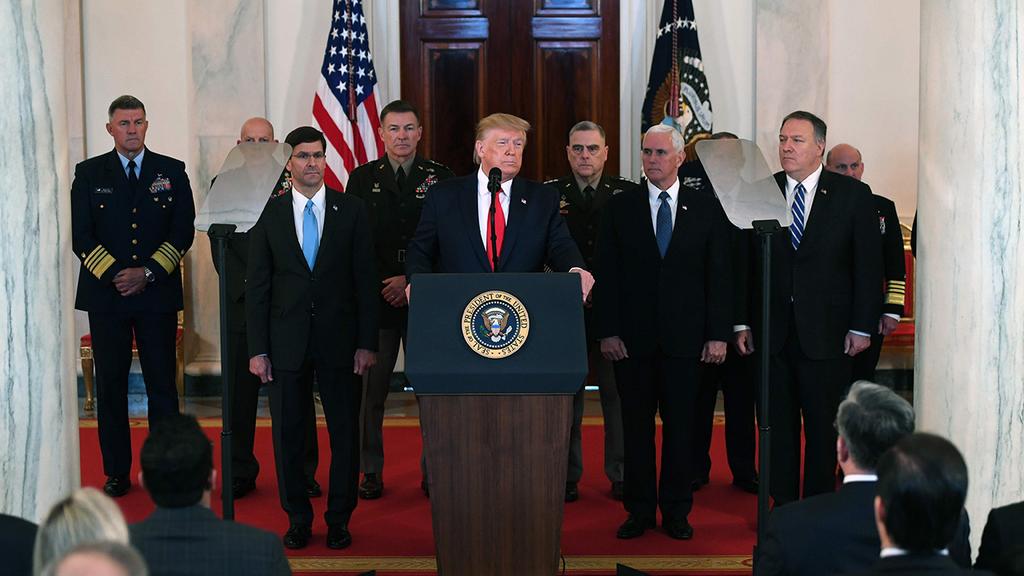Getting your Trinity Audio player ready...
Iran's feeble retaliation on Wednesday for the killing of General Qassem Soleimani, when it launched missile attacks at U.S. troops in Iraq, was an important step that cannot be exaggerated, crossing as it did a psychological barrier.
The regime in Tehran brought hundreds of thousands onto the streets for Soleimani's days-long funeral, which culminated in such madness that dozens were trampled to death, but its revenge for the killing of its most favored general, despite the rhetoric, was no more than a symbolic effort.
3 View gallery


The funeral procession for slain general Qassem Soleimani in his hometown of Kerman
(Photo: AFP)
"It is fortunate that Soleimani is no longer with us to see the cowardly way his death was avenged," said one disappointed Lebanese citizen.
The Iranian missile attack evokes IDF bombings of Hamas targets when Israel wants to avoid an escalation in hostilities. The Iranians even made sure to leave an intelligence footprint to warn American troops of an imminent attack and - to really make sure the information was received - even alerted the Iraqis as well.
3 View gallery


An Iranian missile attack on U.S. troops in Iraq in retaliation for the killing of Qassem Soleimani
As soon as the attack was over, Tehran signaled it was done. They had had their revenge and if the United States refrained from reacting to the missile strike, things could go back to the way they were before last week's targeted killing.
Trump responded by declaring victory and announcing new sanctions would be imposed on Iran. Sanctions, but no military action.
3 View gallery


U.S. President Donald Trump addresses the nation after an Iranian missile attack on troops in Iraq
(Photo: AFP)
Everyone in the region hoped for calm, but two loose ends still remain.
The first is the potential retaliation of pro-Iranian Iraqi militias whose commander was killed alongside Soleimani, and the second is Iran's long-term strategy to remove U.S. forces from the region altogether, starting with their presence in Iraq.
Soleiman's assassination should prompt both Israel and the West to a re-evaluate of Iran's deterrence capabilities.
Is this deterrence backed by military might when facing a substantial fighting force, and how much of it is self-aggrandizing on the part of the regime?
Watching hysterical news analysts yelling in TV studios, the average American viewer may have been convinced that this out of control president was dragging his country into World War III. But the Israelis - who have been combating Iranian entrenchment in Syria and have come to understand the distance between myth and reality when it comes to Iranian strength - knew better.
Arab commentators, in the immediate aftermath of Iran's subdued attack, called the Islamic Republic a "paper tiger."
It would be wrong to assume Iran is weak and on the verge of collapse or that it has used up all of its capabilities, but Supreme Leader Khamenei knows why he made the choice not to test Trump's resolve.
For years, Washington and Jerusalem have debated the value of making a "credible military threat" against Iran, the kind of threat that would dissuade the Iranians from pursuing nuclear weapons. But now we know that threatening Iran with military force can indeed work.

